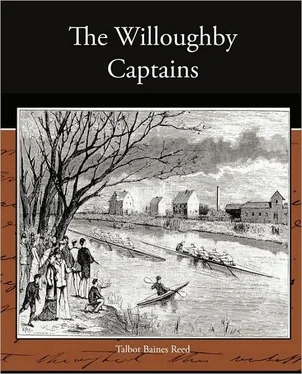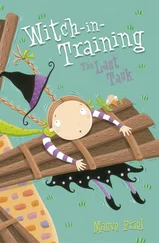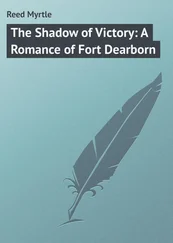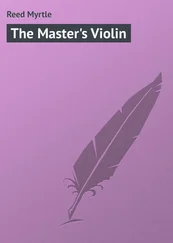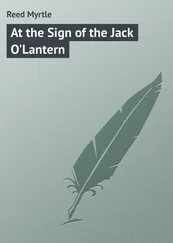But Silk, as the reader knows, was neither painstaking nor conscientious. He did not care a rap about Welch’s, still less about Willoughby. As long as he could please himself and annoy his enemies, he did not care what became of his house or the boys in it. It was only when any one ventured to dispute his authority as head of the house that he attached any value to his office. In fact, it was the story of the Dog in the Manger carried out in school life — he would not be troubled doing his duty to Welch’s, and he would not if he could help it let any one else do it for him.
Riddell, if truth must be told, was not at all sorry to have an early opportunity of coming to an explanation with Silk.
Silk was one of the very few boys in Willoughby whom the captain positively disliked, and that being so Riddell was troubled with none of the half-apologetic nervousness which he usually felt in the presence of his other fellow-seniors. He looked upon Silk both as an enemy to Willoughby and as the evil genius of young Wyndham, and therefore was by no means disposed to beg his pardon or consult his pleasure in the new order of things at Welch’s.
“I hear the juniors have been saying something to you about starting the cricket club,” said Silk, in tones which were the reverse of conciliatory.
“Yes,” said Riddell; “or, rather, I suggested it to them.”
“You did! All I can say is, it’s like your impudence. Welch’s is come to a pretty pass if you’re sent here to look after our athletics.”
Riddell did not feel called upon to reply to this, and Silk therefore continued, “Don’t you know Tucker and I have been captains of the clubs here for the last two years?”
“I was told so.”
“Then what business have you to interfere?”
“There was no house club at all this year.”
“A lot you care about the cricket. I know well enough it’s just a canting dodge for snubbing Tucker and me before the fellows, nothing more.”
“You’re quite mistaken,” replied Riddell.
“Oh, of course! You’d like to make out that you care a fig about cricket. You who couldn’t even bowl a ball from one end of the wickets to the other!”
There seemed nothing particular to reply to in this, so Riddell remained silent. This only irritated Silk the more, who felt that he was by no means getting the best of it.
“You’d better stop this sort of thing at once,” he said, viciously. “You’re sent here to look after the morals of the house, not to interfere with what doesn’t concern you. Tucker and I can look after the cricket without you.”
“Are you and Tucker going to start the old club again, then?” asked Riddell quietly.
“Whatever business of yours is it whether we are or aren’t? Find out.”
“That’s what I’m trying to do. If you are, I’ll advise the other fellows to join it and not have two clubs.”
“ You advise the fellows!” sneered Silk; “they don’t want a schoolhouse prig like you to advise them.”
It was evidently no use trying to conciliate a fellow like this, and Riddell began to get tired of the interview.
“I don’t want to offend you or anybody,” said he boldly; “but if you and Tucker won’t take the trouble to start the club, I don’t see that all the house is to be done out of their cricket in consequence. The fellows have little enough to keep them together as it is.”
“You are a nice little thing to keep them together with, I must say,” snarled Silk, “and you’ve made a good start by setting the juniors against their seniors.”
“I’ve done nothing of the sort,” replied Riddell, quietly; “and if you’ll excuse me, I’ve some work to do, and there’s really not much use talking on the subject.”
So saying, he turned, and began taking his books down from the shelf.
Silk, whose irritation had been gradually getting beyond bounds, was pleased to regard this action as a direct insult to himself, and flared up accordingly.
“Look here, you snivelling, stuck-up, hypocritical prig, you!” exclaimed he, advancing and seizing the captain roughly by the arm, “we’d better come to an understanding at once. If you think you’re going to cheek us just as you please here, you’re mistaken, I tell you. What do you mean by it?”
“By what?” inquired Riddell, mildly, but quite composedly.
Silk’s only reply was a passionate blow in the captain’s face, which sent him staggering to the other side of the room.
It was a critical moment. Riddell was no coward, nor was he one of those sickly individuals who, not satisfied to be struck on one cheek only, invite a repetition of the assault on the other side. Physically weak and nervous as he was, he had sufficient British instinct to move him to stand up for himself.
And yet as he stood there a moment irresolute, it flashed across him that whatever the cost he must not enter upon a fight with Silk.
Of course he would be called a coward, and nothing he could say could prove he wasn’t. He was no match for Silk, and consequently his refusal to defend himself would be called fear.
“And yet,” thought he, “if I fight, my chance in Welch’s is gone, even if I were able to beat him. The fellows will have no more respect for me than any other rowdy, and will soon enough make my thrashing an excuse for mutiny.”
It was a hard position for any boy, and the courage required to hold him back cost Riddell more effort than had he blindly rushed into the fray and given himself up to be thrashed.
“Will you fight?” shouted Silk, advancing.
“No,” said Riddell, as coolly as he could.
“Wretched coward!” exclaimed the bully, “of course you won’t. Then take what you deserve. I’ll give you the biggest hiding you ever had in your life.”
He would probably have carried out his threat, and Riddell would probably before half a minute have given up all further idea of non-resistance, when an opportune diversion occurred in the person of Telson, who appeared with the remainder of his late senior’s possessions from the schoolhouse.
“I say, Riddell,” he exclaimed, almost before the door was open, “here’s a jolly go! I’ve got to be that beast Gilks’s fag, and— Hullo! what’s up?”
This remark was caused by Silk’s suddenly turning on his heel and hurrying from the study without putting into execution his threat.
“What was he up to?” asked Telson, as the door was shut. “He was going to exterminate me, so he said,” replied Riddell, smiling.
“I wish he’d tried, and you’d given him a jolly licking,” said Telson. “He’s a cad. I wonder what young Wyndham or any one sees to like in him.”
“Wyndham likes him, then?” asked the captain. “They always seem jolly thick,” said the fag. “By the way, Riddell, were you ever at Beamish’s?”
“Beamish’s? No!” exclaimed Riddell. “Why?”
“Oh,” said Telson, “I only wanted to know what sort of place it was.”
“Not a good one. There’s a pretty strong rule against it in the school. Bad job for any one caught going there.”
“I know, I’m not going; I only wanted to know what sort of place it was. But I’m off, I’ve got a motion on in Parliament to-morrow. I say, Riddell, I wish you hadn’t left the schoolhouse.”
And off went the junior, leaving Riddell somewhat perplexed by his chatter, but considerably consoled nevertheless to think that there was any one in the schoolhouse, or anywhere, who was sorry to lose him.
However, the same reason which took Telson away left Riddell also little time to spend in vague reflections. He, too, had a speech to prepare for Parliament to-morrow.
The meeting promised to be an important one in many respects. It was the first after the boat-race, and consequently party feeling was likely to make use of the opportunity to let off a little of its steam. Then, of course, it was the captain’s first public appearance as the head of Welch’s, and that was sure to excite a good deal of curiosity and interest. And last, but not least, the subject for the evening was a debate on the question, “That Willoughby is Degenerate,” to be opened in the affirmative by Ashley, and in the negative by Porter, and on this burning question the debate as well as the division promised to be pretty interesting.
Читать дальше
